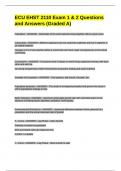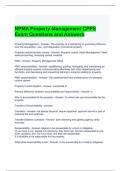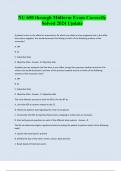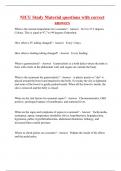Exam (elaborations)
ECU EHST 2110 Exam 1 & 2 Questions and Answers (Graded A)
- Course
- Institution
ECU EHST 2110 Exam 1 & 2 Questions and Answers (Graded A)ECU EHST 2110 Exam 1 & 2 Questions and Answers (Graded A)ECU EHST 2110 Exam 1 & 2 Questions and Answers (Graded A)ECU EHST 2110 Exam 1 & 2 Questions and Answers (Graded A) Population - ANSWER - individuals of the same species living together...
[Show more]












